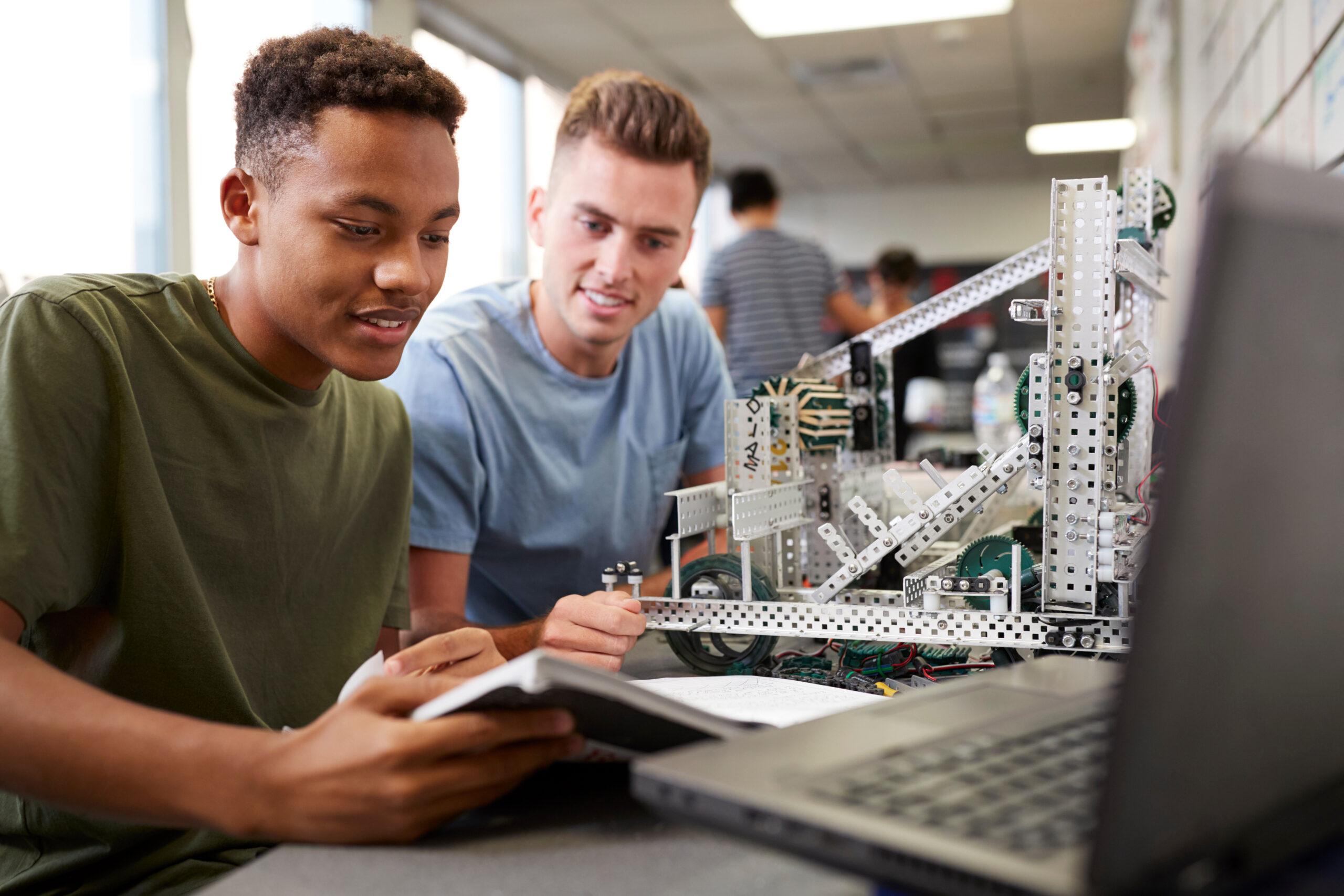How can space leaders across Africa inspire and equip the next generation to shape the continent’s role in global space exploration? What strategies are space leaders using to build sustainable education, mentorship, and innovation pipelines for Africa’s growing space economy? How can collaboration among space leaders accelerate Africa’s journey from consumers of technology to creators of it?
Africa’s space revolution is gaining momentum, powered by a new generation of space leaders who are turning vision into action. Across the continent, countries are investing in education, research, and mentorship to build local expertise in satellite technology, aerospace engineering, and data science. These space leaders are proving that Africa’s future in space isn’t about dependency—it’s about innovation, collaboration, and self-sufficiency. By inspiring young minds through programs like World Space Week and NASA Space Apps, they are transforming curiosity into career paths that directly impact agriculture, climate monitoring, and connectivity.
At the heart of this transformation is a belief that Africa’s space leaders must not only master technology but also cultivate leadership and governance that will sustain progress for decades to come. From Angola’s national space strategy to cross-border partnerships, like the Angola–South Africa collaboration, these initiatives demonstrate the power of collective vision. The next wave of space leaders will define Africa’s place in global exploration—building not just satellites, but a legacy of innovation, unity, and scientific excellence across the continent.
Africa is entering an exciting era in space science. More countries are recognizing how space-based technologies can help solve real-world problems, such as tracking droughts, improving crop yields, monitoring climate change, and connecting remote communities. In just a few years, several African nations have launched satellites, created national space agencies, and built new academic programs to train the next generation of engineers and scientists.
For me, the most powerful part of this moment is that it’s no longer just about importing technology. It’s about building our own capacity and putting African expertise at the center. That means investing in people—especially young people—who will lead tomorrow’s missions.
The numbers are promising. According to Space in Africa, the continent’s space economy is expected to surpass USD 22 billion by 2026, driven by satellite development, data services, and a growing technical workforce. That growth tells me one thing clearly: this is the time to prepare space leaders who can shape Africa’s role in global exploration.
Table of Contents:
Building Capacity Through Education and Skills Development
Mentorship and Real Research Opportunities
Platforms for Youth Engagement and Inspiration
Inspiration That Turns into Action
Angola’s Leadership in Shaping Africa’s Space Future
Representing Africa on the Global Stage
Mentorship and Leadership Development
Advancing Research and Innovation in African Space Programs
Innovation That Drives Development
Strengthening Continental Partnerships for a Shared Future
Platforms That Bring Africa Together
Envisioning a New Generation of Innovators
Building Capacity Through Education and Skills Development
Everything starts with education. STEM, which stands for science, technology, engineering, and mathematics, is the foundation of any sustainable space program. Across Africa, more universities are introducing courses in aerospace engineering, satellite technology, and data science. Governments and institutions are setting up national training programs to build technical skills at scale. When a country invests in its students, it invests in its future innovators.
But STEM education can’t begin only at the university level. It has to start earlier, at the primary and secondary school stages. If students encounter robotics, coding, and space concepts young, they build curiosity and confidence long before they choose a career. Supporting teacher training, science clubs, and after-school programs plays a critical role in building this pipeline. If we want to launch satellites, we must first launch imagination.
Mentorship and Real Research Opportunities
I’ve seen how strong partnerships between universities and space agencies create real opportunities for students. Mentorship is just as important as coursework. When young people work on actual research projects, their ambitions turn into skills. For example, co-supervising academic work, such as the ISU crop classification thesis, has shown me how effective hands-on experience can be in shaping the next generation of space engineers and scientists.
We need more of these structured pathways that allow students to learn, build, and lead. That’s how we ensure our countries don’t just participate but truly contribute to space exploration. For a deeper look at how education is being built into national strategy, I often refer people to Springer’s chapter on Angola’s Space Strategy.
Platforms for Youth Engagement and Inspiration
Youth engagement is at the heart of this transformation. Programs designed specifically for young people help turn curiosity into careers. One example is World Space Week, an annual celebration held in over 90 countries. In Africa, it has become a key platform for outreach, providing students with hands-on experiences using satellite data, robotics, and space science demonstrations.
Another program that I’ve seen open doors for young innovators is the NASA Space Apps Challenge. It’s a global hackathon where participants use open space data to solve real-world problems. Every year, more African teams join, creating solutions around issues like food security and environmental monitoring. These programs show young people that space isn’t some distant idea; it’s a career path that’s open to them.
Africa’s growing space momentum is now converging through NewSpace Africa—a movement bringing together startups, universities, and governments to make the continent a producer of space technology and innovation. The NewSpace Africa Conference has become the leading platform for this community, connecting young engineers, researchers, and entrepreneurs with global partners, investors, and mentors.
Events like the International Astronautical Congress (IAC) amplify this momentum, showcasing African success stories and connecting emerging talent with established space agencies and industry leaders.
Inspiration That Turns into Action
When I speak to students at these events, I see how a single moment of inspiration can change their entire trajectory. One conversation can lead to a student joining a research team or applying for a scholarship in aerospace engineering. These experiences plant the seeds for future space leaders who will push Africa forward.
Angola’s Leadership in Shaping Africa’s Space Future
I’ve witnessed Angola take bold steps to lead in space technology. Over the last decade, the country has steadily built its national space program through the work of GGPEN—the National Space Program Management Office. The focus has always been clear: to develop local expertise, invest in technical infrastructure, and inspire young people to join the space sector.
During World Space Week in Angola, for example, schools and universities host interactive sessions, exhibitions, and contests. These events aren’t just celebrations—they’re pipelines, bringing young people into a field where their contributions matter.
Representing Africa on the Global Stage
Our participation at IAC 76 in Sydney was a proud moment. GGPEN’s presence at this major global conference put Angola’s achievements in satellite development, training, and research on an international stage. It also aligns directly with the vision outlined in Angola’s Space Strategy 2016-2025, which prioritizes knowledge exchange and technological innovation.
Mentorship and Leadership Development
Mentorship is something I take personally. My role in building Angola’s first space engineering workforce has shown me how essential it is to combine technical training with leadership development. It’s not just about launching satellites; it’s about preparing people who can design, operate, and innovate for decades to come.
This vision isn’t just an idea; it’s already in motion. Space in Africa’s profile on the Angolan National Space Program highlights how national investment in human capital is shaping the country’s future in space. And in a SpaceWatch.Global’s Space Economy Insights episode, I speak about why mentoring young engineers is just as important as building infrastructure. Leadership and technology must grow together—that’s how we secure Africa’s place in the global space sector.
Advancing Research and Innovation in African Space Programs
Strong space programs are built on research and innovation. Across Africa, research institutions and universities are collaborating with government and industry to develop new solutions. These partnerships create ecosystems where young researchers can work on real missions, not just theoretical exercises.
When we built the first Angolan space engineering team, we created more than jobs; we built a knowledge base. Today, those engineers work on satellite missions, ground infrastructure, and data analysis that supports everything from agriculture to environmental management. This model shows how research investments can produce homegrown solutions.
Innovation That Drives Development
What excites me most is seeing how these efforts are creating a new wave of African space leaders who are inventing, not just implementing. A good example of how space technology is already driving development is outlined in Space in Africa’s report on Angola’s use of space for sustainable development. Innovation isn’t just happening in labs; it’s showing up in farms, hospitals, classrooms, and infrastructure projects across the continent.
Strengthening Continental Partnerships for a Shared Future
No single country can build a sustainable space sector in isolation. Cross-border partnerships are essential for sharing knowledge, pooling resources, and accelerating progress. One of the best examples I’ve seen is the Angola–South Africa space partnership. This collaboration focuses on knowledge exchange and joint technical projects, which strengthen capacity in both countries. You can read more about that partnership at TechReviewAfrica.
Building Collective Capacity
Continental partnerships also help reduce dependence on external technology providers. By pooling expertise, African nations can develop joint missions, share ground station infrastructure, and negotiate better terms in the global market. Instead of each country working alone, we can create a powerful, coordinated space ecosystem.
Platforms That Bring Africa Together
I believe regional platforms are equally important. The upcoming NewSpace Africa Conference 2026 will bring together space agencies, industry experts, researchers, and youth from across the continent. Conferences like this help us align strategies, build networks, and amplify our collective impact.
Space is a shared frontier. By working together, we’re not just building technology, we’re building a continental vision. The more we collaborate, the stronger Africa’s position becomes in global space exploration. RFI’s coverage on Angola’s use of space technology for development offers a good perspective on why these partnerships matter.
Envisioning a New Generation of Innovators
Africa’s journey into space is about people first. It’s about making sure young Africans see themselves not just as spectators but as builders, engineers, researchers, and mission leaders. Programs like World Space Week , NASA Space Apps, NewSpace Africa, and the International Astronautical Conference (IAC) give them the tools and confidence to step forward. Initiatives like Angola’s space strategy show what happens when vision meets action.
Building a Lasting Legacy
This is about more than just today’s projects. It’s about creating a legacy that future generations can build on. It’s about forming networks of engineers, researchers, and policymakers who can continue advancing Africa’s presence in space long after today’s missions have concluded. Real leadership means setting the stage so others can go even further.
Leading, Not Following
I’ve had the privilege of mentoring some of these future engineers, researchers, and leaders. I’ve seen how investing in skills, education, and opportunity can transform individuals and, by extension, entire nations. The young people we inspire today will become the space leaders of tomorrow—those who design missions, lead research, and represent Africa on the global stage.
We’re not preparing to follow. We’re preparing to lead. And I believe that leadership will define Africa’s contribution to space for generations to come.





